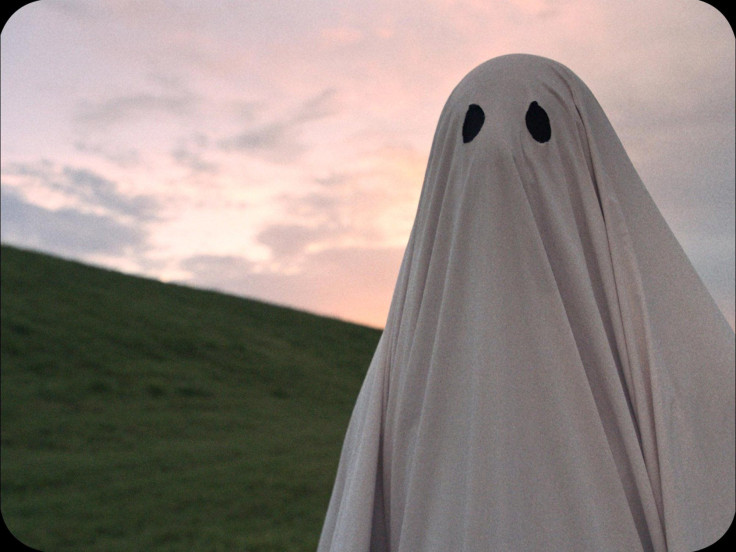Even situated against the mystery of death and the immensity of the universe, it’s people who remain the most inscrutable. About halfway through A Ghost Story, there’s a party. And just like most parties, there’s a drunk dude (this one in overalls) philosophizing on the fate of the human species. While he can articulate the sublimity of art — its capacity to reach from mind to mind, expanding thought and bringing light to darkness — his view is ultimately fatalistic. Civilization will burn, children will die and even if we find haven in the stars away from this ruined planet, the universe will collapse upon us, compacting all art and all human achievement into nothing but a timeless singularity.
This man, though well-spoken in his nihilistic narrative, isn’t saying anything you haven’t heard before. It’s the kind of speech you’d be more likely to push away, maybe with an eyeroll, than embrace. It seems to rely on a faulty premise: who is claiming art’s worth, or life’s worth, depends upon its permanence? Isn’t the snowflake’s fragility exquisite?
A Ghost Story both refutes and affirms this partygoer’s position. As a significant monologue in the middle of a movie with hardly any dialogue, it’s already weighty. But A Ghost Story goes further, giving the man its singular attention. The people trapped at the table across from him are rapt. The party dies down to hear his crescendoing declarations of doom. Even the titular ghost stops to listen — one of the few humans he extends such respect in many years of haunting. There’s nothing in the presentation that suggests we’re seeing a buffoon or a fool, railing against truths the movie would otherwise endorse.
Yet there can be found in A Ghost Story ample refutation. For one, we’ve witnessed a doorway open in a hospital wall, revealing the universe outside the physical. Whether it’s a doorway to heaven, hell, or the roots of Yggdrasil is immaterial — in A Ghost Story there is definitive meaning and substance outside of the bounds of the decaying material plane. So which is it, meaning or hollowness? Is this A Ghost Story having it both ways? Or are the muddle of feelings A Ghost Story left me with the closest approximation of truth we’ll find on this side of the black veil? A Ghost Story isn’t telling.
A Ghost Story opens with a couple planning their move away from their exurban house to a neon condo block. Rooney Mara is doing all the work while Casey Affleck (neither of their characters are named) drags his feet. He loves the old house and doesn’t want to move. When he dies abruptly, it’s the house he haunts, not Mara.
Which is characteristic of A Ghost Story. It's a memento mori in the purest sense, asking us to contemplate death and the transience of our mortal pursuits. But being so much about death, it’s hard to say how it feels about life. Affleck, appearing in most of the movie under a sheet (his death shroud) with eyes cut from it, watches life go by. Sometimes it slows, but mostly it’s so very, very fast. Everyone he knew moves on and abandons the place he’s pinned his soul. A family with kids moves in, but then the house is empty. A futuristic city rises, sinister in its aspect. And all along, our ghost has only brief, wordless conversations with the ghost next door, who seems baffled that the world could have left him or her behind. All along, profundity slips again and again from our grasp. It’s always just out of reach.
Some of A Ghost Story feels almost like the genre movies from which it takes its spectral premises (like a ghost’s unfinished business holding them back). The portal to an afterlife — offered only once — shines on the ghost in Dario Argento neons. The ghost throws a fit, shattering dishes in a Poltergeist-ian rage, terrifying the young family who has taken up residence in the house. But there’s always the distance of death and the detachment of time’s promise to wipe away each particular moment.
Watching A Ghost Story is an observer watching an observer, twice removed from life. It’s a peculiar viewing experience that feels elegiac (the picturesque 4:3 aspect ratio adds to this sensation) and a little distancing, laden with a contemplative passivity that rewards only what contemplation you bring to it. Personally, I found the ghost’s fate horrifying — a purgatory, rather than a state of grace, as cognition falls away, passions are made impotent and intimacy is debased into distance, smeared over years and years. But that doesn’t seem to be the intended impression. Fear of death can overwhelm anything, even a painterly, quiet film like A Ghost Story.
Affleck’s ghost experiences time in both interminable sadnesses, as his wife’s grief plays out real-time, and galloping forward, as the house decays around him. We inscribe ourselves on people and places, but our scratches are too inexpert to cut beneath the surface. And so we are worn away, even if, like our ghost, we rewrite ourselves upon the same spaces over a hundred lifetimes. Which may be the most poignant and sad message A Ghost Story has to offer: even with a great span of time, life continues to be mysterious and slipping away. And should you find some answer, perhaps written on a scrap of paper like the one Mara leaves behind, it’ll be on to the next mystery and there will be nothing left of you to remember.



















